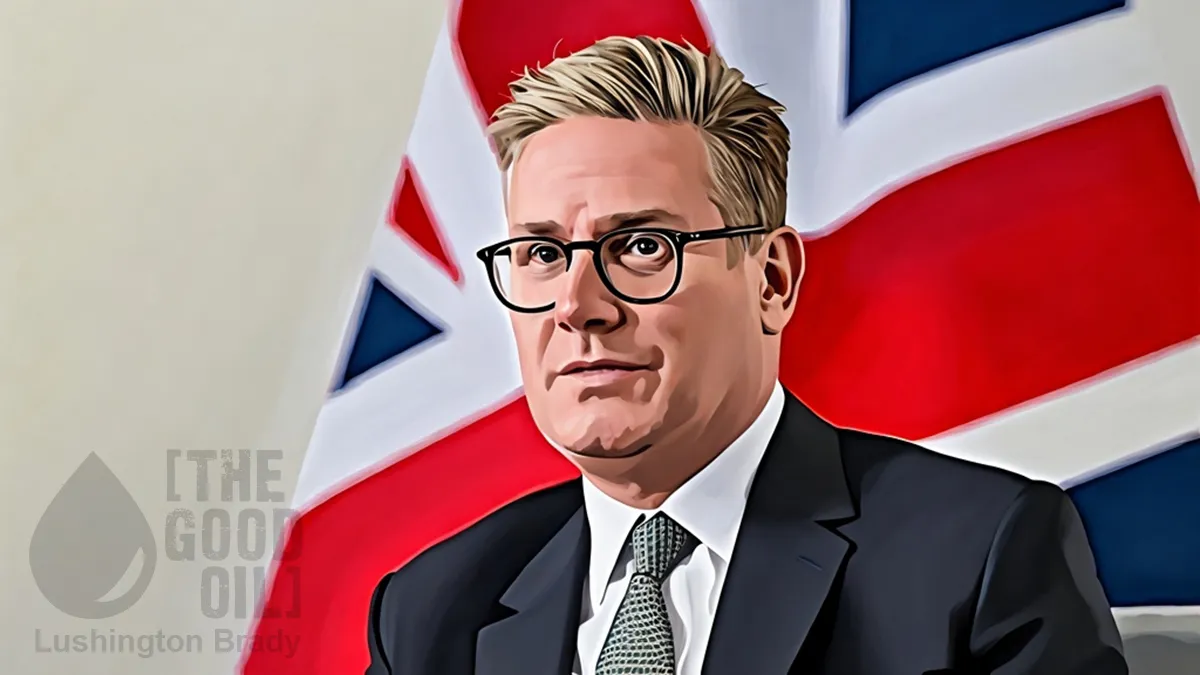Table of Contents
Caleb Anderson
Published first on NZCPR
Ideas are often difficult to define. Generally, our understanding of ideas is defined by two things.
1. By what an idea does (what it produces)
2. By what it is not (by its opposite)
How would you define democracy, for example?
Most of us would define it by what it does (gives as many people as possible a say in how a country runs – it gives freedom to think and act to the individual), and by what it is not (a system where people are told to do almost everything they do by someone else – freedom to think and act is taken away from, or ceded by, the individual).
I want to dwell for just a moment on definition by way of opposites. This is an old idea in philosophy (and psychology). We know the colour black because it is not the colour red, or green etc). We know fast because it is not slow. The meaning of fast a hundred years ago was a steamer as opposed to a sailing ship. Today it is defined by an airliner over, perhaps, a journey by train.
So meanings are contextual and they are relative.
Ideas are also defined, in large part, by their opposite idea. I used the example of democracy above. Another example would be truth, which is often best explained by its opposite – lies (or mistruth).
In a healthy democracy, opposing ideas are allowed into public discourse for the primary purpose that they frame, bind, and define each other. If certain ideas are permitted in discourse, and others are not, you get a distortion. When some ideas are allowed to gestate in isolation from other ideas, they always go further than it is prudent for them to go.
In politics, the left keeps the right accountable and the right keeps the left accountable, and the ebb and flow of administrations ensures, on balance, that policy is even-handed, and that a country does not lurch too far in one direction or the other.
Thus every idea needs “limiting” (opposing) ideas to keep it in check, to prevent its potential excesses, and to make its proponents accountable.
In free societies, the ebb and flow of ideas allow good ideas to flourish, bad ideas are sent packing, and in between ideas can be reworked, modified, and repurposed. So, just as fruitful interpersonal relationships balance us, rub off our rough edges, and make us more human … so, relationships between ideas make these ideas more balanced, identify problematic elements, and make the proponents of these ideas accountable.
When seen this way, it is less the idea that matters, than it is what you do with this idea, and how far you take it.
Taken too far, almost any idea can be problematic, or even dangerous. When properly bounded (by the challenge posed by other ideas) an idea can become a force for good … or it can be dispensed with.
I think the problem in the West (and certainly in New Zealand) is that a good number of ideas have been allowed to go unchallenged. Although there may have been a kernel of truth (or at least an interesting question) nested in some of these ideas to start with, they have frequently been allowed to expand beyond the boundaries of good reason, common sense, logic, fairness, or empirical validation.
When I was at university in the mid nineteen-eighties I encountered some ideas that seemed utterly mad. These ideas were coming out of social science faculties. There were many, but I will highlight just one.
The idea was being taught that racism has nothing to do with character, it has nothing to do with how you relate to others, nothing to do with your ethics. We were told that racism was about how much power you had over others, and about how you exercise this for advantage. All of a sudden it was about competing groups (we recognize Marxism here – but that’s another story). And the next step. No matter what a person of European extraction did or said they were intrinsically racist. No matter what a person of colour did, or said, that person could not, under any circumstances, be defined as racist. This way of thinking seemed ridiculous to many of us, and we imagined that it would never gain currency beyond the looney corridors of social science departments.
How wrong we were.
When ideas are allowed to go unchallenged, because those espousing them seem clever, because the idea is gaining critical mass, or because it is dangerous to stand against them, these ideas WILL move to extremes.
In the above example, we had a unilateral redefinition of terms (of what racism was). This idea was allowed to gestate in the more radical faculties in our universities (without challenge), it was taught to vulnerable students (and accepted by many of them as truth), it seeped into education and the bureaucracy, and into portions of the judiciary and the legislature. It reached a critical momentum by which time questioning this idea would be dangerous to career and reputation, so people who knew better fell silent.
So, it continued to roll, unchecked, unchallenged until it became “orthodoxy”.
We see the same process unfolding with regard to climate and gender theory. Ideas are planted in our universities and think tanks, are picked up by bureaucrats, consultants, and policymakers, and are implemented as if they are true beyond contention. It becomes a forbidden thing to challenge these ideas, they are presented as sacrosanct, as self-eminently true, and opposing voices are mercilessly silenced.
It would have been incomprehensible twenty years ago that schools would be teaching five-year-olds that they can decide whether they are a boy or a girl.
New Zealand (and the wider West) desperately needs to restore a marketplace where ideas are allowed to be freely expressed, even when they are distasteful. Ideas need to be challenged and shaped by other ideas, not by the redefinition of terms, the prohibition of alternative views, and the disenfranchisement of common sense and wisdom.
We need an open debate in the West around issues of race, gender, climate, and colonisation. Those who seek, by threats of violence, to silence debate, need a clear message that this will not be tolerated … and publicly funded media need to be required to equally profile all sides of an argument (for a change).
To be honest, I think our centre-right political voices have been too quiet on too many issues for too long. The debate in New Zealand has shifted too far to the left, and expediency and compromise have accelerated the seeding of ideas that are distasteful to most New Zealanders and dangerous to our democracy.
It remains to be seen whether the coalition government has what it takes to draw the line and weather the storm. It also remains to be seen whether the sixty (potentially seventy) per cent of the population that is concerned about our direction will stand with them.
But the seeds of totalitarianism have already been sown, and it is always harder to regain lost ground than to cede it in the first place.
Having said that, the price we will need to pay for healthy public discourse, no matter how great, may be less than the price we will ultimately pay for the status quo.
Ideas are great but, if unbounded by contrary ideas, they WILL be taken too far and WILL become (HAVE BECOME) dangerous.









